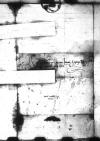Letter #5724
Sigismund I Jagiellon to Ioannes DANTISCUSCracow, 1545-10-10
| received Heilsberg (Lidzbark Warmiński), 1545-10-20 Manuscript sources:
| ||||
Text & apparatus & commentaryPlain textText & commentaryText & apparatus
Reverendo in Christo Patri, domino
Reverende paper damaged⌈[everende]everende paper damaged⌉ in Christo Pater et Domine, sincere nobis dilecte paper damaged⌈[ilecte]ilecte paper damaged⌉.
Studium Paternitatis Vestrae in iis curandis, quae ad
nostram atti paper damaged⌈[atti]atti paper damaged⌉nent dignitatem, nobis plurimum probatur. Con paper damaged⌈[tur. Con]tur. Con paper damaged⌉silium generosi
Quae bene valeat.
Dat(ae) or Dat(um)⌈Dat(ae)Dat(ae) or Dat(um)⌉ Cracoviae paper damaged⌈[coviae ]coviae paper damaged⌉, X Octobris, anno Domini M-o D-o stain⌈[D-o ]D-o stain⌉ XLV-o.
Ad mandatum s(erenissimae) or s(acrae)⌈s(erenissimae)s(erenissimae) or s(acrae)⌉ regiae maiestatis proprium


 BNW, BOZ, 953, f. 257v
BNW, BOZ, 953, f. 257v